Object! On the Documentary as Art – Session 2
Saturday 4 February 2017, 2:00pm
Whitechapel Gallery
77-82 Whitechapel High St
London
E1 7QX
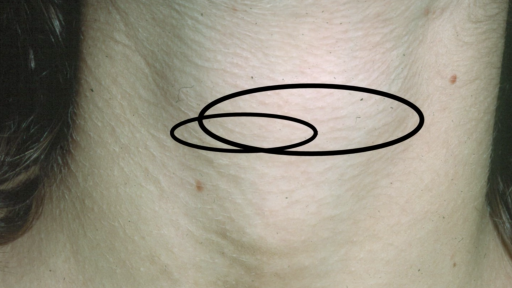
2:00 – 3:30 Session 2
The Feeling of Being, a programme of artists’ films featuring works by Ben Balcom, Hannah Black, Wu Tsang, Sky Hopinka and Neïl Beloufa, is followed by Owed to Bussa / Owed to Senzeni Na, a live performance by Hannah Catherine Jones aka Foxy Moron exploring decolonisation and race-relations using vocals, Theremin and video.
The Feeling of Being brings together a group of contemporary artist filmmakers along a critical trajectory straddling representation and embodiment, subjectivity and objectification, speculation and the real. The selected works draw on, and draw apart, the human body, laying bare the violence at the heart of being but also the inherent promise of “new becomings”. By siding with “the grasped, the enframed, the taken, the kept” (Fred Moten), they gesture towards different ways of being in the world, attuned to our mutual entanglement and vulnerability. The artists gathered in this programme get intimate with the object agencies inscribed in minor languages and lingos, struggling to make sense at the limit of what sovereign subjects care to know; they conjure ancestral and future forms of being that extend or dissolve the self into its social or technological surroundings, finding unforeseeable and forgotten answers to the question: What does it feel like to become an object? – Nikolaus Perneczky
Selected by Mihaela Brebenel, Minou Norouzi and Nikolaus Perneczky.
–
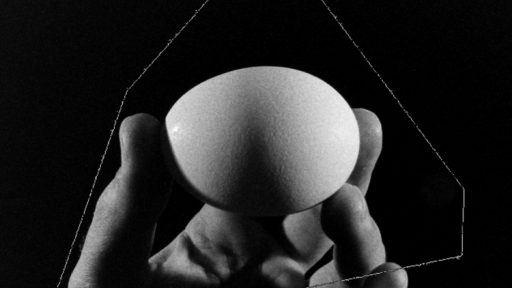
Notes from the Interior | Ben Balcom | USA 2016 | 16mm to HD | 11 min
Wandering through the body puzzling out a system of symbols. The trouble is, affect resists signification outright. The inside and outside become muddled when you start to feel your body in relation to an image.
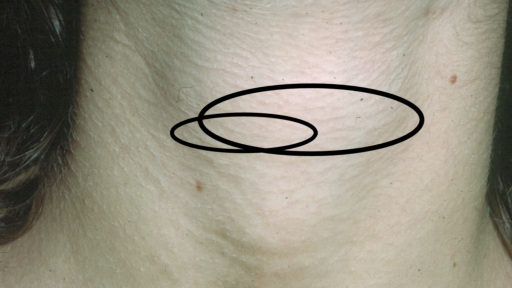
The Neck | Hannah Black | UK 2015 | HD | 3 min 28s
“These are just some of the things I got wrong in the drawings I did as a child”. A video text commissioned by Laura Morrison for Concerning the Bodyguard at The Tetley, Leeds, UK
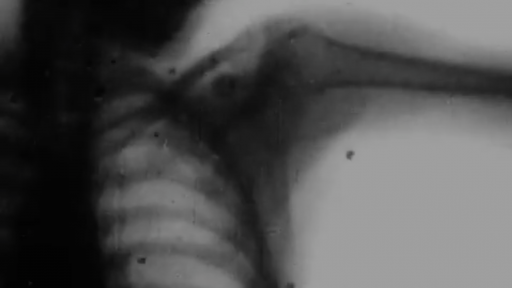
Jenny Marx’s Operation | Hannah Black | UK 2012 | SD | 7 min 26s
“Day and night I saw you wounded, bleeding and ill, and, Karl, to tell you the whole truth, I was not altogether unhappy in this thought: for I vividly imagined that you had lost your right hand, and, Karl, I was in a state of rapture, of bliss, because of that.” – Jenny von Westphalen, 1839
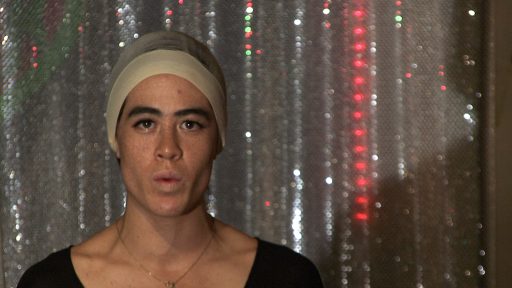
Shape of a Right Statement | Wu Tsang | USA 2012 | HD | 5 min
Staring directly at the camera, Tsang re-performs one section of ‘In My Language,’ a forceful address by autism rights activist Amanda Baggs. Tsang’s powerful video manifesto was shot at the Silver Platter, home to the club Wildness (2007-2009), following a year in which the artist had presented live performances of the Baggs text. Tsang mimetically reproduces the voice of Baggs’s Speech Generation Device, stating, “It is only when I type something in your language that you refer to me as having communication.”
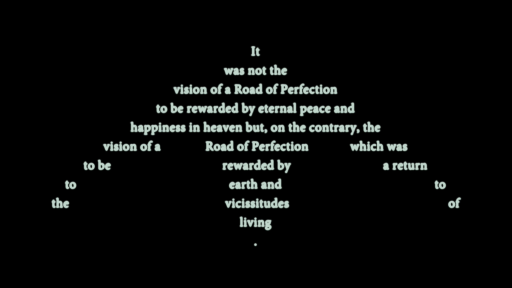
I'll remember you as you were, not as what you'll become | Sky Hopinka | USA 2016 | HD | 12 min 32s
An elegy to Diane Burns (1957-2006) on the shapes of mortality, and being, and the forms the transcendent spirit takes while descending upon landscapes of life and death. A place for new mythologies to syncopate with deterritorialized movement and song, reifying old routes of reincarnation. Where resignation gives hope for another opportunity, another form, for a return to the vicissitudes of the living and all their refractions. “I’m from Oklahoma I ain’t got no one to call my own.
If you will be my honey, I will be your sugar pie way hi ya way ya hi ya way ya hi yo” – Diane Burns
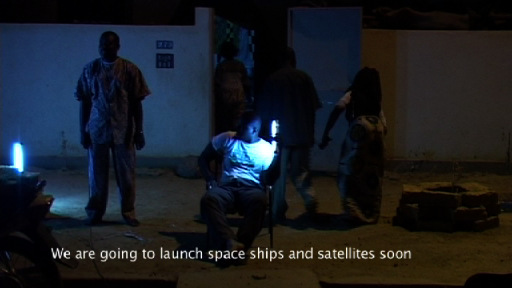
Kempinski | Neïl Beloufa | France 2007 | Video | 12 min 41s
Kempinski is a mystical and animist place. People emerge from the dark, holding fluorescent lamps; they speak about a magical world. “Today we have a space station. We will launch space ships and a few satellites soon that will allow us to have much more information about the other stations and other stars.” Their testimonies spark confusion and contradiction: a second reading is necessary to fully understand what is going on in this unique blend of fiction (sci-fi) and ‘real’ documentary. The scenario of ‘Kempinski’, filmed in various towns in Mali, is defined by specific rules: interviewed people imagine the future and speak about it in the present tense. Their hopeful, poetic and spiritual stories and fantasies are recorded and edited in a melodc way. Image and text courtesy of the artist, and Ghebaly Gallery.
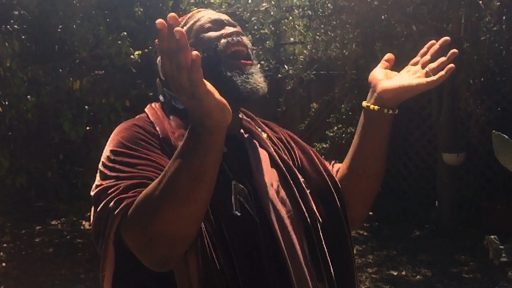
Girl Talk | Wu Tsang | USA 2015 | HD | 4 min
Girl Talk is a short film collaboration with poet and theorist Fred Moten. Dancing in slow motion, or ‘dragged time,’ to an a cappella rendition of Betty Carter’s jazz standard “Girl Talk” (reinterpreted and vocalized by Josiah Wise), Moten turns euphorically in a sunlit garden as the crystals adorning his body refract pink, blue, and green rays. In exploring the figure of the drag queen and the mother, Moten and Tsang, poet and artist, remain unfixed in any one persona. Selection of 2016 Berlinale Film Festival Forum Expanded.
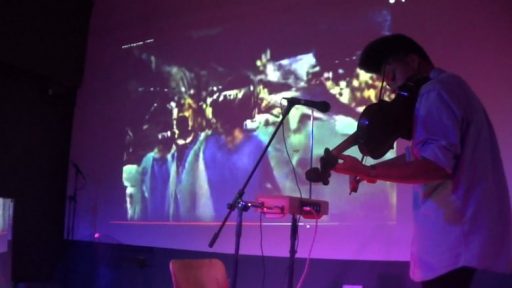
Owed to Bussa / Owed to Senzeni Na | Hannah Catherine Jones | UKLive performance & discussion
Owed to Bussa / Owed to Senzeni Na explores decolonisation and race-relations using vocals, theremin and video. The performance is followed by a discussion.